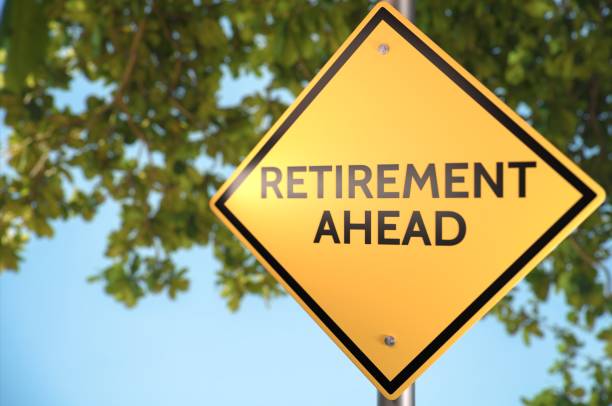
When a person thinks of retirement, they have a thousand things running through their mind. They are often met with a mix of emotions about the situation that they are going to be in. One one hand, retiring means that you get to sit back, relax, and enjoy the fruit of your labor. This is what you have been working all those years for; for the time you can live how you want to, and do the things that you have always loved doing. For most people, retiring is a beautiful thing, but that doesn’t mean that sometimes, retiring can be scary. There are multiple fears that tend to cross their minds, making them wonder if retiring was a good idea after all.
One of the first fears that people tend to have is whether the money that they have saved will be enough or not.
You have worked throughout your life, and retirement is now your time to enjoy all that you have worked so hard for. If you were in a stable well paying job, you probably were used to living a comfortable life. You might not be able to splurge as much as you used to, which can come as a difficult task for some. So what can you do to take care of this fear?
Planning For Medical Expenses
Having medical expenses during your retirement is something that causes a lot of people to hold onto their jobs longer. Often, jobs come with medical care incentives and insurance, which can be a great boon in the case of a medical emergency. However, most companies ask you to forgo these health benefits once you retire, which can make retiring an incredibly scary experience. Planning and budgeting for this can be hard, which is why you should get a health insurance that gives you excellent coverage and which can keep you well situated in these instances.
Keep Yourself Busy
The fear of being by yourself and not having anything to do is something that a lot of people retiring face. You might have been accustomed to getting up early in the morning and heading to work. You might be used to spending your entire day engaged in your job, and then coming home and spending time either with yourself or your friends and family. Retiring means that you have a lot more time on your hands, which can cause some people to get frustrated. It is extremely important to find something that you like doing and keep yourself engaged in that. You can take up a small part-time job that lets you work from home, or even take up a hobby that you have always wanted to learn and cultivate that skill. Who knows what new passions you will discover.
Does your plan meet all your retirement needs? Schedule an appointment now with one of our advisors for a complimentary review of your retirement plan.

Retiring is a special time for any individual. It’s when you get to relax, be with family and friends, or pursue a hobby you were always interested in but just never had the time to. Of course, as you approach this last stretch of your career, this also indicates a lifestyle change. Identifying these financial and personal changes and preparing accordingly can give you more peace of mind. Here are four things you should know if you’re retiring soon.
Healthcare Coverage
Your health is at its most vulnerable state in your senior years. Retiring in your 60s, you’d want to make sure you have enough healthcare coverage to pay for costly emergency bills, medication, and assisted care services. If you are expecting financial aid from your Medicare plan, keep in mind that benefits do not start paying off until you’re 65 years of age. If you are below 65, there are many other affordable healthcare options out there. Thanks to the Affordable Care Act, retirees are guaranteed coverage despite having any preexisting conditions. You also can’t be charged more than what they are charging for someone in tiptop shape. Lastly, note that Medicare doesn’t cover all health-related expenses incurred so check with your healthcare provider to make sure your specific healthcare needs are met.
Emotional Preparedness
Oftentimes, it won’t hit you that fast, but the transition from a productive and active individual to a retiree can be mentally and emotionally uncomfortable. Most people only prepare for the financial changes but fail to devote any time or effort to the mental upheaval that comes with leaving the professional grind behind. And while you’ve been looking forward to some downtime from all the responsibilities and burdens of your personal and professional life, you might be surprised by how you’re thrown into an emotional loop when you retire. Studies by the Institute of Economic Affairs suggest that 40 percent of retirees are at risk of suffering from clinical depression than working Americans.
Financial Growth
Even when you’re retired and laying on the beach while sipping some mojitos, you’ll want your retirement funds to keep working for you. Financial growth should never plateau just because you’ve stopped earning a regular salary. Consider investing in stocks, real estate, currencies, commodities, and other assets that can help grow your funds. Because you’re investing in your 60s, a more aggressive approach may be needed since time is a limited resource. However, consult with your financial professional and consider your specific situation before making any investment decisions.
Social Security Benefits
At its core, Social Security is a financial safety net for retirees. It was pushed by Congress in the mid-1930s through Social Security Act. The program allows budding retirees to make scheduled contributions while they’re employed. The plan then pays out after you retire. Federal Insurance Contributions Act or FICA taxes are deducted as contributions from your paycheck. While Medicare is commonly included in a SS benefits package, keep in mind that these two programs are different.
Final Thoughts
Before you hand out your two weeks’ notice and clean out your desk, make sure you’ve considered these important aspects of retirement. Your ability to relax and maintain your desired lifestyle after retiring is hugely dependent on your ability to plan and prepare for every possible scenario while you’re still employed.
Does your plan meet all your retirement needs? Schedule an appointment now with one of our advisors for a complimentary review of your retirement plan.

When you think of a dream job, you might envision a venture that individuals pursue when they are younger. For example, many college students are asked about their dream job. However, as an older adult, you have the opportunity to pursue your dream job at this time. Before you balk at the idea, consider the reasons why now is the perfect time.
Stable Income
If you take a look at the median amount of savings people have by retirement, you’ll realize that you may have the extra income to leap into a new profession. In other words, you may have enough money saved to quit the part-time job you’ve been working or to take the necessary classes to get your dream job. Financial instability is often a factor that keeps people from achieving their dreams, so when you do reach that point of stability, going for your goals is a smart move.
Ability to Return to School
At many points in life, returning to college or attending a university for the first time simply isn’t feasible. When you’re younger, you likely have many other bills to pay, such as child care expenses and a mortgage. With the average cost of college, enrolling in a program is simply over budget for many people. At an older age, however, these bills can start to decline, and you may have the ability to afford to get the degree necessary to pursue your dream job. Do look into the degree requirements for the job. You may not need a degree from a four-year university. Also, keep in mind that the cost of state schools is typically lower than the price of private institutions.
Sense of Self
Trying to figure out what you want to do for the rest of your life as a teenager is extremely difficult for a variety of reasons. One of the reasons is that you really do not fully know yourself yet. For example, several teenagers question their faith and give up religion entirely for at least a brief period. On the contrary, becoming a clergy member is a popular job for older Americans. This sense of self does not have to be religious. By the time you are older, you likely know more about your beliefs overall, your interests and your passions.
Confidence
Going for your dream job takes a significant amount of confidence. Sometimes, young people have not yet built up the necessary confidence in their communication skills or simply in the ability of the job to pursue their dreams. Of course, overconfidence can lead to problems, but having enough confidence to pursue your dreams is crucial. By this time in your life, you have likely recognized what your strengths are. You know that you have the skills necessary to pursue the position. This boost of confidence can help you to get in the door for your dream job.
Time and Location
You might also have avoided pursuing your dream job because of time. For example, if you had to work a full-time job to support your family or if you were focused on bringing the kids to their activities and school events, you did not necessarily have the time to chase after your dreams. Now that the kids are grown up and now that you have retired, you have some extra time on your hands to put toward focusing on yourself. Further, these commitments when you were younger might have kept you tied to a specific geographic location. With this extra freedom in terms of time, you may also now have the ability to relocate to an area that will better allow you to get your dream job.
Being older doesn’t mean that you need to give up on having new dreams. In fact, now could very well be the best time in your life to go after these pursuits and passions.
Does your plan meet all your retirement needs? Schedule an appointment now with one of our advisors for a complimentary review of your retirement plan.

Retirement is something most people look forward to in the United States. This is because it offers them the opportunity to travel, spend time with their families and essentially relax. All that is possible because most people are going to qualify for Social Security benefits. However, some individuals, especially those who used to run their own business, may find retirement to be a little too dull for their liking. As a result, many will often go looking for part-time work to either have something to do or supplement their monthly income. But how much does this affect your Social Security benefits? Read on to learn about this very important topic.
How Your Social Security May Change
As stated above, beginning to work full or even part-time can drastically affect your Social Security benefits. Although there are various factors that the government will take into consideration before making any changes, it is still good to know the potential changes that may benefit you. Below are a few of those potential changes:
- Your benefits will vary depending on your age
- Your Social Security benefits may be reduced depending on your new income.
- The types of benefits may be eliminated or altered to account for your new income.
Understanding Full Retirement Age
One of the most common terms you will hear when considering opting in for Social Security is “Full Retirement Age.” This is because although you can certainly accept Social Security at 62, your benefits may be reduced depending on your birth year. What this means is that depending on the year you were born and the laws during that time, your “full retirement age” will matter greatly in terms of how much you get. For example, someone born in 1937 or earlier will reach full retirement age of 65 rather than today’s 62. Why does this matter so much? It matters because if you are legally at full retirement age, you can work and earn as much as you want without being penalized by the government.
Working Before Full Retirement Age
If, unfortunately, your birth year law states that you are not considered to be at “full retirement age” just yet, you will have to be careful about how much you earn each month. According to the Social Security department, individuals who are not at full retirement age and are currently working full or part-time can only make $1,580 per month or $18,960 per year. If you go beyond that limit, your benefits will decrease by one dollar for every two dollars earned over the limit. That is why it is highly recommended to keep a detailed record of how much you are earning through regular wages and yearly bonuses, as they will also be considered part of your income.
Social Security Earnings Limit for 2021
Earlier, we spoke about the fact that those who are at full retirement age can earn as much as they want without fearing a reduction in their benefits. However, things are going to be very different if you are reaching full retirement age within the year 2021. This is because now there will be an earnings limit imposed amongst many other changes. The new earnings limit for individuals who will be reaching full retirement age and receiving Social Security will be $4,210 per month or $50,520 a year. After every one dollar that is earned, three dollars will be reduced from your monthly Social Security check.
As you can see from the information above, several factors must be taken into consideration when deciding to return to the workforce. Although each person’s circumstance & experience will dictate how much or how little of their benefits are changed, much of the rules imposed by the Social Security department are universal.
Does your plan meet all your retirement needs? Schedule an appointment now with one of our advisors for a complimentary review of your retirement plan.

Retiring is the goal of every worker who dreams of leisurely breakfasts and time in the garden. However, getting to retirement takes some financial effort and strategic planning. The reality of having no job means that you’re on your own when it comes to every facet of your financial life. Before you send in that letter of resignation, get familiar with the top questions that you need to ask yourself before retiring. You’ll have less stress as a result of these well-answered questions.
What’s Your Plan For Healthcare?
When you’re working, your employer’s coverage keeps you healthy with reasonably affordable policies. All of that changes when you retire, however. Ask yourself if you have a plan for healthcare coverage. Ironically, the time of your life when you really need healthcare coincides with the lack of an employer’s policy.
Luckily, the federal government offers Medicare. From the moment that you turn 65 years of age, you can take advantage of this program. It covers the bulk of your medical needs, and there are supplemental programs for options that you care to invest in.
COBRA insurance coverage is possible between your employment period and signing up for Medicare, but it only lasts for up to 18 months. It can also be very expensive because the employer isn’t paying for part of the cost. Ideally, you’ll want to rely solely on Medicare while looking for supplemental programs to cover speciality items, such as vision.
What Will Your Income Include?
On average, Social Security will cover about 40 percent of your income in the golden years. You can start payouts as early as age 67, but many retirees choose age 70 because there’s a higher monthly payout as a result of waiting. Your retirement savings must cover the bulk of the remaining shortage.
Many financial experts teach the concept of the 4- percent rule. In essence, you can take 4 percent of your funds from a retiring account each year, and you should still have enough money to cover your remaining years. There are other calculations to consider, such as understanding how much money you’ll need each month in these relaxing years. Although some experts believe that you can live off of 70 or 80 percent of your previous earnings, it’s ideal to shoot for a comparable income as earned during your working days. With this tabulation, you have extra funds for hobbies and traveling.
Do You Have Plans For Your Time Off?
Planning for your golden years also means that you need to fill the time that is now open to you. Isolating yourself from your social network at work can be detrimental to your health. Make rough plans for your golden years because filling the time can be a rewarding prospect. Volunteer with charities, help out the family or get a part-time job. Working as a consultant with your previous employer might be an option that keeps you connected while still enjoying the spoils of retiring in your 60s.
It’s natural to try new things, but then you’re not too thrilled with them. Continue to explore as you grow older because you might find a hobby or talent that sparks creativity in your mind. Many retirees find themselves starting a business as they learn how to offer a product or service that counts in the neighborhood.
Stay updated with your retirement plan by logging into your funds regularly. By knowing how much you have and where it will be allocated gives you a clear view of your retirement pathway. Retire with confidence that your plans will stand the test of time as opportunities spread out ahead of you.
Does your plan meet all your retirement needs? Schedule an appointment now with one of our advisors for a complimentary review of your retirement plan.





